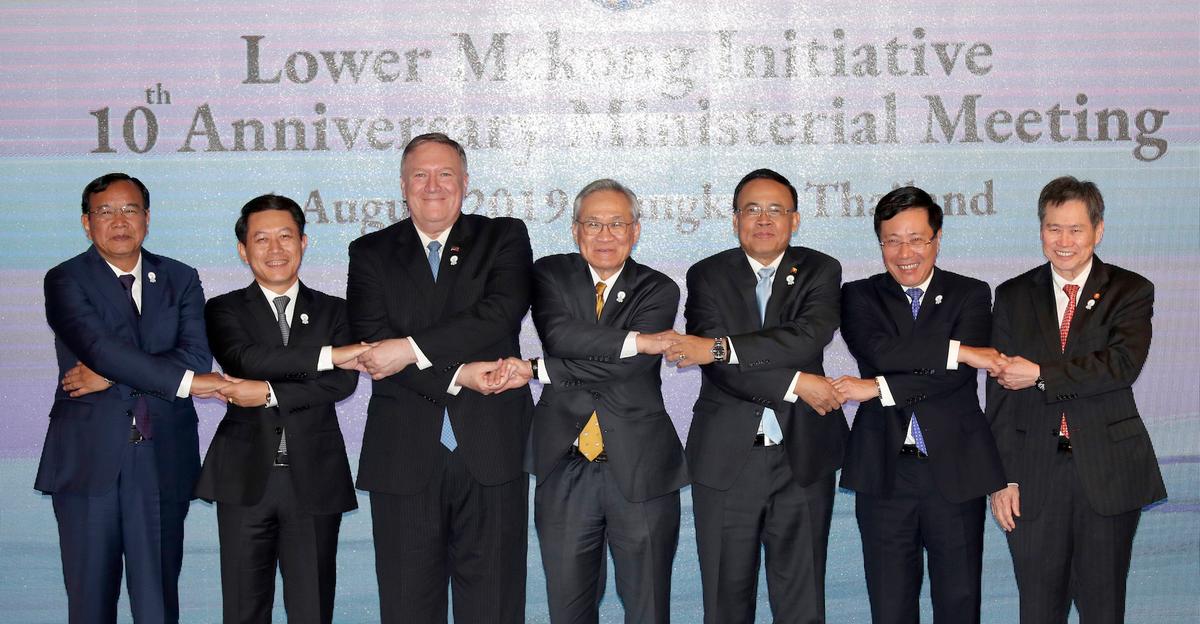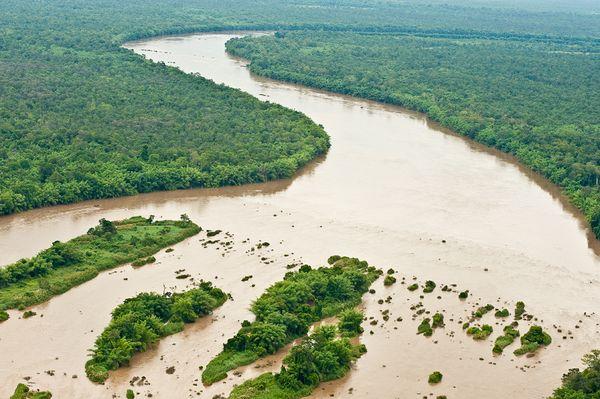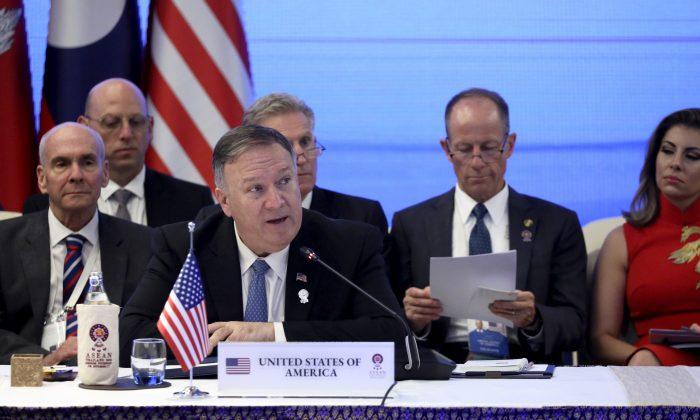BANGKOK—U.S. Secretary of State Mike Pompeo expressed concern on Aug. 1 over Chinese dam building, dredging and other activities on the Mekong River in Southeast Asia, calling them “troubling trends.”
He spoke Thursday in Thailand’s capital with his counterparts from countries through which the river flows, including Thailand, Cambodia, Laos and Vietnam. The foreign ministers of the 10 member countries of the Association of Southeast Asian Nations—ASEAN—are having their annual meetings in Bangkok this week.

“We see a spree of upstream dam building which concentrates control over downstream flows,” Pompeo said. “The river has been at its lowest levels in a decade—a problem linked to China’s decision to shut off water upstream. China also has plans to blast and dredge riverbeds. China operates extra-territorial river patrols.”
He also noted “a push to craft new Beijing-directed rules to govern the river” that would usurp the role of the regional Mekong River Commission.
China has built 10 dams along the upper stretch of the Mekong, the part it calls the Langcang. It is trying to have parts of the river dredged or rapids cleared so that large cargo ships can navigate.
Critics have long warned that these actions can have disruptive environmental and economic effects downstream.
The Mekong River is vital to Southeast Asia, where more than 60 million people rely on and its tributaries for food, water and transport.
The world’s 12th longest river, it runs nearly 3,107 miles (3,000 kilometers) from the Tibetan Plateau and down into mainland Southeast Asia before emptying into the South China Sea, in Vietnam.

Yet the river is also another potential source of regional tensions due to an increasing number of hydroelectric projects that are altering the flow and raising concerns of ecological damage.
“Local people within Thailand and the lower Mekong basin know very well the impacts of China’s dams and proposal for rapids blasting on the river. They have been raising concerns over these impacts for a long time,” said Pianporn Deetes, a spokeswoman in Thailand for the environmental group International Rivers.
“The events of recent weeks have shown the dire consequences of damming for the river system,” she said, referring to the recent finding of low water levels. “While overdue—it is positive that the critical importance and values of the Mekong and the threats the river system faces are being raised in the ASEAN meetings. As well as recognition, we now need concrete and meaningful cooperation.”






Friends Read Free